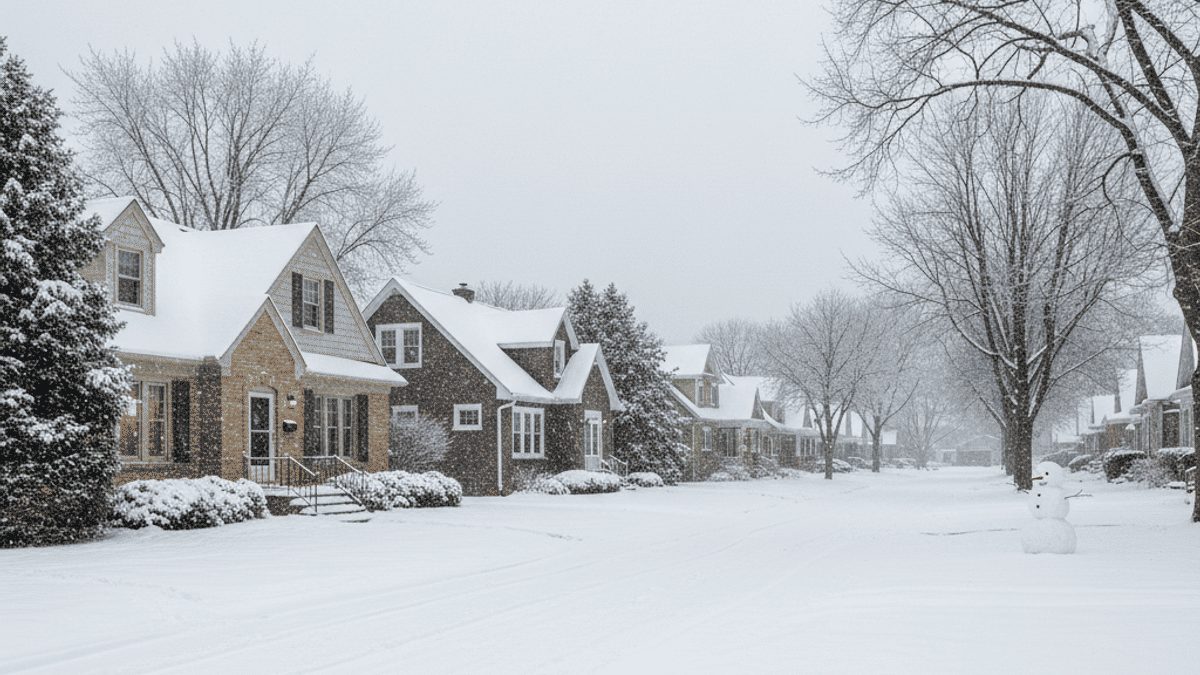How Long to Own Before Selling in Madison
You bought a house in Madison and now you’re wondering how long you should keep it before you stick the For-Sale sign in the yard. Ten years sounds like a tidy national average, sure. Still, you live in south-central Wisconsin, not a textbook example. So let’s talk timing, money, and a few sneaky local quirks that can tilt the scales.
Timing Matters (a Lot)
Real estate is part science, part gut feeling. Hold too long and you might watch interest rates climb or your roof age out of warranty. Sell too soon and you could leave thousands of appreciation dollars on the table. In other words, timing isn’t polite background noise—it is the whole song.
Across the country, owners cling to their homes for roughly a decade. They build equity, repaint the kitchen, maybe adopt a dog, then decide it’s time to move on. Madisonians? We hover near that benchmark but not for the same reasons. Badger football Saturdays, a booming tech scene, and yes, those glimmering lakes all tug at the local equation.
The Madison Market in Five Quick Bites
- Median sale price, spring 2024: about $405,000
- Average days on market: under 20 when snow finally melts
- Annual appreciation since 2018: roughly 6%
- Vacancy rate: tight, usually near 1%
- Mortgage rates: high-fives to low-sixes if your credit is decent
These numbers change faster than weather on the Isthmus, yet they explain why buyers scramble and sellers cash out with smiles.
Why People Pull the Trigger Early
- Job hops. Epic, Exact Sciences, and a swarm of biotech startups hire aggressively. Relocation packages tempt homeowners to sell after only four or five years.
- Equity spikes. Someone who bought for $300k in 2019 very likely sits on $120k or more in unrealized gain. That kind of profit whispers, “List it.”
- Lifestyle pivots. Extra bedroom needed for a home office, or maybe the condo on the Capitol Square suddenly feels cramped. Space decisions accelerate timelines.
- Tax incentives. Live in a place two out of the last five years and you can usually exclude up to $500k in capital gains if you file jointly. People plan around that rule.
When Waiting Makes Sense
- Interest rates sit above 6.5%. Buyers get price-sensitive, meaning you may settle for leaner offers.
- The home still has major systems in their early years. Why sell if the furnace, roof, and windows are basically new? Enjoy the cheap maintenance stretch.
- You refinanced below 3% back in 2020. Replacing that mortgage would sting.
Life happens, though, and life cares very little about market charts. Let’s break down the main pressure points.
Money
Equity is the holy grail. Madison homes have stacked up solid appreciation since 2015. Run a quick Zestimate if you must, then double-check with a human agent who knows your neighborhood. When your equity covers the next down payment plus closing costs, selling becomes less nerve-racking.
Maintenance
Age sneaks up on a property. Roof shingles curl, water heaters pout, driveways crack in the freeze-thaw cycle. Once your “to-fix” list hits the $25k range, owners either pony up or pass the baton. If your roof needs replacing soon, buyers will notice and subtract dollar signs from their offers. Sometimes it is worth holding a bit longer, completing the upgrades, and listing at a higher price point.
Local Economy
Madison’s unemployment rate floats around 2%–3% most years, well below the national norm. That steady paycheck pipeline feeds demand. High demand plus scarce inventory equals leverage for sellers. If you sense your workplace or the broader local economy stumbling, consider locking in today’s price rather than betting on tomorrow.
Seasonality
Snowbanks the size of a Mini Cooper do not scream “curb appeal.” Late March through early June often triggers bidding wars. Autumn can work, too, after folks come back from summer travel. Deep winter? Possible, though showings compete with blizzards and bowl games. If you can align your move with peak curb-appeal season, you shorten market time and lift offers.
Madison vs. National Averages
The ten-year hold period rings true in many metros; Madison slides slightly shorter, flirting with eight to nine years. Here is why:
- Rapid population growth—about 14% since 2010—boosts buyer pools.
- The University of Wisconsin churns out grads who want to stay put, hunt for homes, and push prices up.
- Limited land on the Isthmus squeezes inventory, forcing values to climb faster than the national chart.
Put bluntly, you build equity quicker here than in many mid-sized cities, so locking in gains sooner than ten years can still look smart.
Three Vivid Scenarios
Scenario 1: The Five-Year Tech Riser
Alex bought a bungalow in Atwood in 2019 for $320k. By 2024, Zillow spits out $450k. Epic dangles a promotion in Verona but demands a shorter commute. Alex lists in spring, pockets roughly $90k after paying off the mortgage and fees, and rolls that into a newer home closer to campus. Waiting another five years may produce more appreciation, yet the shorter drive and larger yard matter more.
Scenario 2: The Remodel and Flip-Hold
Jamie snagged a fixer in 2016 on the Near West Side. Sweat equity plus $80k of upgrades lifted value from $260k to $420k. Jamie rents out the lower level for two years, lets rent checks pay the refi, then sells at year eight once hardwood floors and quartz counters feel modern again. Timing? Based on when the remodeled style peaks, not on any abstract decade marker.
Scenario 3: The Late Decision
Chris purchased a Sun Prairie colonial in 2008 at $275k. Mortgage was refinanced to 2.75% in 2021. Equity looks juicy—over $200k—but a new roof and siding will run $40k. Chris decides to ride out at least three more years, saving cash in a high-yield account. The cheap mortgage offsets repair anxiety, for now.
How to Gauge Your Own Clock
- Check appreciation. Grab three sold comps from the last 90 days within half a mile. Multiply your square footage by the average sold price per square foot. Crude yet telling.
- Compare mortgage payoff versus likely sale price. Equity should exceed 20% after costs to make the math comfortable.
- Audit life events coming down the pike. Remote work permanent? Kids switching schools? Empty nest around the corner? Each one can bump the timeline forward or back.
- Peek at interest rates. If rates dip beneath 5%, buyer demand heats up quickly. You may command top dollar without waiting for the ten-year bell.
Expert Nudges
- Local appraisers suggest at least five years to cover closing costs and ride out normal market swings.
- Financial planners love the two-out-of-five-year capital-gains exclusion window. Miss it and you hand over a chunk to the IRS.
- Contractors warn about the 12-to-15-year system-failure zone. Furnace, water heater, roof, sometimes all in the same decade. If yours align, factor those bills into the decision.
Reading the Tea Leaves in 2024
Inventory is tight, plain and simple. Many owners clutch sub-3% mortgages, refusing to trade up. That means fewer listings, fiercer competition among buyers, and a sweet spot for sellers who do brave the market. National economists predict rates easing back under 6% by late 2024. Madison’s wages keep marching upward. Together, those forces imply continued solid demand and price resilience.
Action Steps if You Think You’re Close to Selling
- Invite a real estate agent over for a low-stakes walk-through. No commitment, just numbers.
- Order a pre-inspection. Small fixes caught early save headaches during negotiations.
- Sketch out timing. Spring or fall deliver the best curb appeal.
- Get quotes on any lingering maintenance items. Knowing cost beats guessing.
- Crunch your net proceeds. Mortgage payoff, transfer fee, commissions, staging, moving truck—all of it. Net number drives the choice, not the top-line sale price.
Should You Wait the Full Ten Years?
Maybe, maybe not. Madison doesn’t punish short-term owners the way slower-growing areas can. Build equity fast, sure, but remember the soft side of the equation: lifestyle, commute, stress. If your home works today, hold it. If it pinches your budget or patience, sell sooner and capture gains.
Ready to Explore?
Reach out to a local agent, pull your payoff statement, and peek at recent neighborhood closings. One afternoon of homework can reveal whether you stay or go. Whatever you choose, you’ll move forward with facts, not hunches, and that beats guessing every single time.
Final Takeaway
“How long should you own a home before selling? Madison” is a loaded question. The quick answer sits near eight to ten years. The smarter answer? Sell when equity, life stage, and market conditions align. That magic moment might arrive at year six or year twelve. Eyes open, numbers in hand, and you’ll know.













